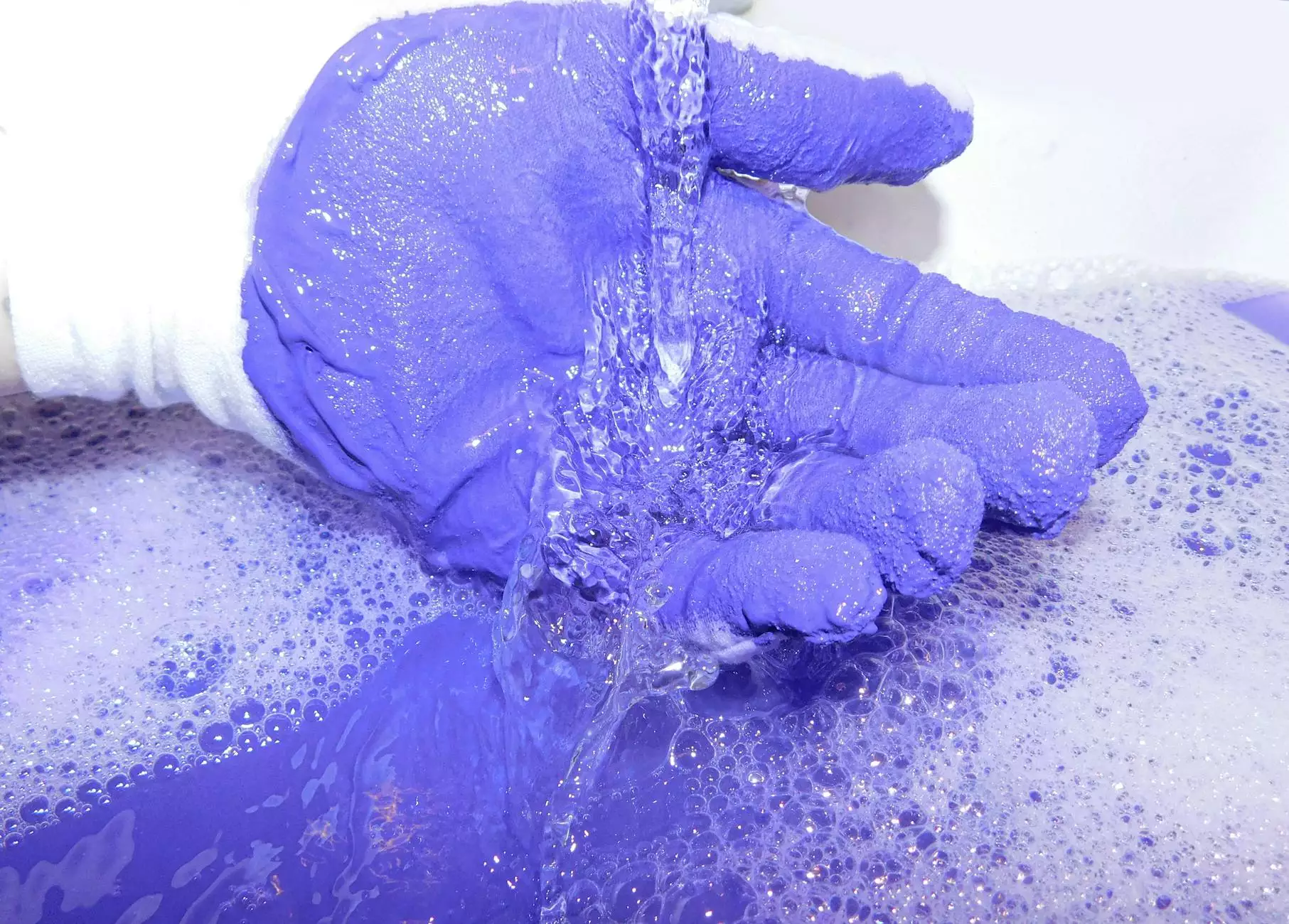Industrial Water Cleaner: Transforming Water Purification Services

In today's world, water cleanliness is of paramount importance, especially for industries that rely on pure water for their operations. The advent of advanced technologies has given rise to the concept of the industrial water cleaner, a vital tool that ensures the integrity and quality of water for various applications. This article will delve into the significance of industrial water cleaners, their functionalities, and how businesses can leverage them to enhance their water purification processes.
Understanding the Importance of Industrial Water Cleaners
Water is a crucial resource that supports numerous functions in manufacturing, energy production, and service industries. However, water sources can often be contaminated with pollutants, chemicals, and pathogens. An industrial water cleaner plays a crucial role in addressing these challenges. Here’s why they matter:
- Enhanced Water Quality: Industrial water cleaners effectively remove contaminants, ensuring that the water is safe for use.
- Regulatory Compliance: Many industries must adhere to strict regulations regarding water quality. Industrial water cleaners help meet these compliance standards.
- Cost Efficiency: By maintaining clean water, businesses can avoid costly downtimes and damages caused by water-related issues.
- Environmental Sustainability: Utilizing effective cleaning technologies minimizes waste and promotes sustainable practices within industrial operations.
Types of Industrial Water Cleaners
The market offers a variety of industrial water cleaners, each designed to handle specific challenges. Understanding these types is essential for selecting the appropriate solution:
1. Reverse Osmosis Systems
Reverse osmosis (RO) systems are one of the most common types of industrial water cleaners. They utilize a semi-permeable membrane to separate impurities from water. This technology is effective for:
- Removing dissolved solids
- Eliminating contaminants like heavy metals and bacteria
- Producing high-purity water suitable for pharmaceuticals and food processing
2. Ultraviolet (UV) Purification
UV purification systems use ultraviolet light to disinfect water, making them essential for maintaining microbiological safety. Advantages of UV systems include:
- No addition of chemicals
- Instantaneous disinfection capabilities
- Minimal maintenance requirements
3. Activated Carbon Filters
Activated carbon filtration is widely used to improve taste and odor in water while effectively removing chlorine and organic compounds. Industries benefit from these filters in many ways:
- Cost-effective solution for improving water quality
- Simple installation and operation
- Durability and low power consumption
4. Mechanical Filters
Mechanical filters are essential for removing particulate matter from water. They act as the first line of defense in the purification process, which includes:
- Coarse filters for larger debris
- Fine filters for silt and sediment
- Pre-filtration before advanced treatment processes
How Industrial Water Cleaners Contribute to Water Suppliers and Stores
The role of industrial water cleaners extends beyond mere purification; they also significantly impact water suppliers and retail stores that provide water to households and businesses. Here’s how:
Ensuring Quality in Supply Chains
Water suppliers are responsible for delivering high-quality water to consumers. By integrating industrial water cleaners into their processes, they can:
- Ensure consistent quality control for the water distributed
- Reduce the risk of contamination during transport and storage
- Enhance customer trust and satisfaction
Retail Stores Offering Water Purification Products
Water stores are increasingly embracing advanced water purification technologies to meet consumer demands for quality water. Here’s how industrial water cleaners are beneficial:
- Providing various filtration options for different customer needs
- Attracting environmentally conscious consumers through sustainable practices
- Facilitating educational outreach on the importance of clean water
Practical Steps for Businesses to Implement Industrial Water Cleaning Solutions
Implementing an effective industrial water cleaning solution requires a strategic approach. Here are practical steps businesses can take:
1. Assess Water Quality Requirements
Identifying specific quality standards based on industry needs is crucial. This involves:
- Testing initial water samples
- Determining common contaminants
- Establishing treatment goals for the intended application
2. Research and Select Appropriate Technologies
Once businesses understand their requirements, they must explore suitable industrial water cleaning technologies. Factors to consider include:
- Efficiency and throughput requirements
- Maintenance and operational costs
- Scalability for future growth
3. Collaborate with Experts
Engaging with industry experts or consultants can provide valuable insights and support for implementation:
- Expert evaluation of system design and placement
- Guidance on regulatory compliance and best practices
- Training for staff on operation and maintenance
4. Monitor and Optimize Performance
After installation, continuous monitoring is crucial for ensuring that the systems are performing optimally:
- Regular water testing and system audits
- Adjustment of processes based on performance data
- Scheduled maintenance to prolong system life
The Future of Industrial Water Cleaning
As industries face growing pressure to conserve resources and reduce environmental impact, the future of industrial water cleanliness lies in innovation and sustainability. Emerging technologies such as:
- Nanotechnology: Enhancing filtration efficiency and capacity.
- Smart Systems: Implementing IoT and automation for real-time monitoring and control.
- Hybrid Systems: Combining multiple purification techniques for superior results.
These advancements will not only improve the quality of water but also foster sustainable practices that benefit both businesses and the environment.
Conclusion
In conclusion, the role of the industrial water cleaner in modern businesses cannot be overstated. From improving water quality to ensuring compliance and sustainability, these systems are essential for any industry that relies on clean water. Companies like Bimakskimya stand at the forefront of this technology, providing innovative solutions tailored to the specific needs of water purification services, water suppliers, and retail water stores. Embracing these technologies is not only a smart choice for operational efficiency but also a commitment to preserving the planet for future generations.





